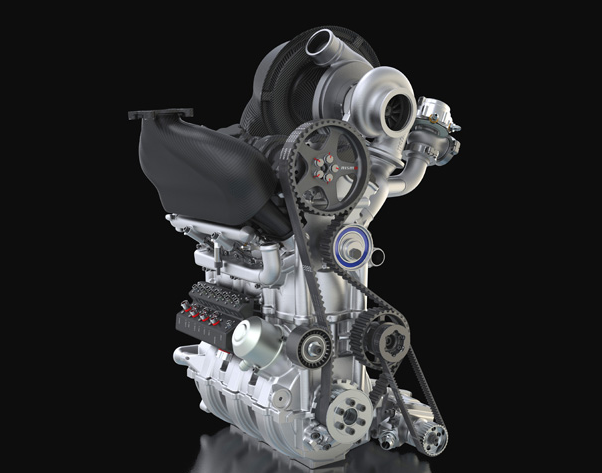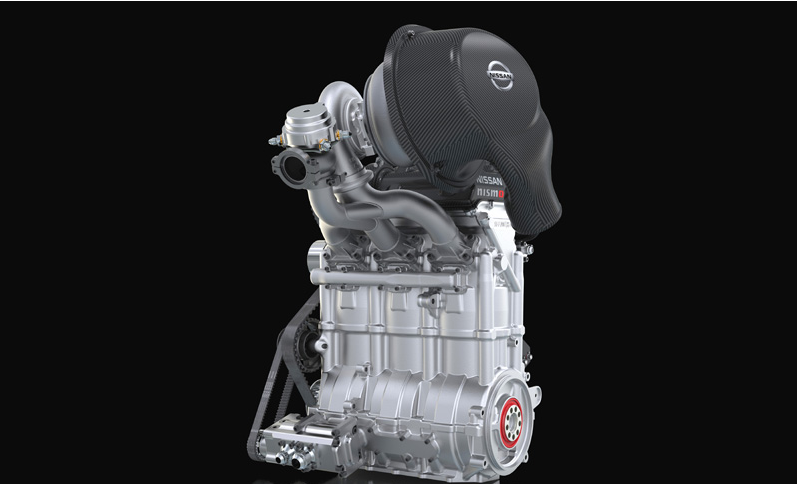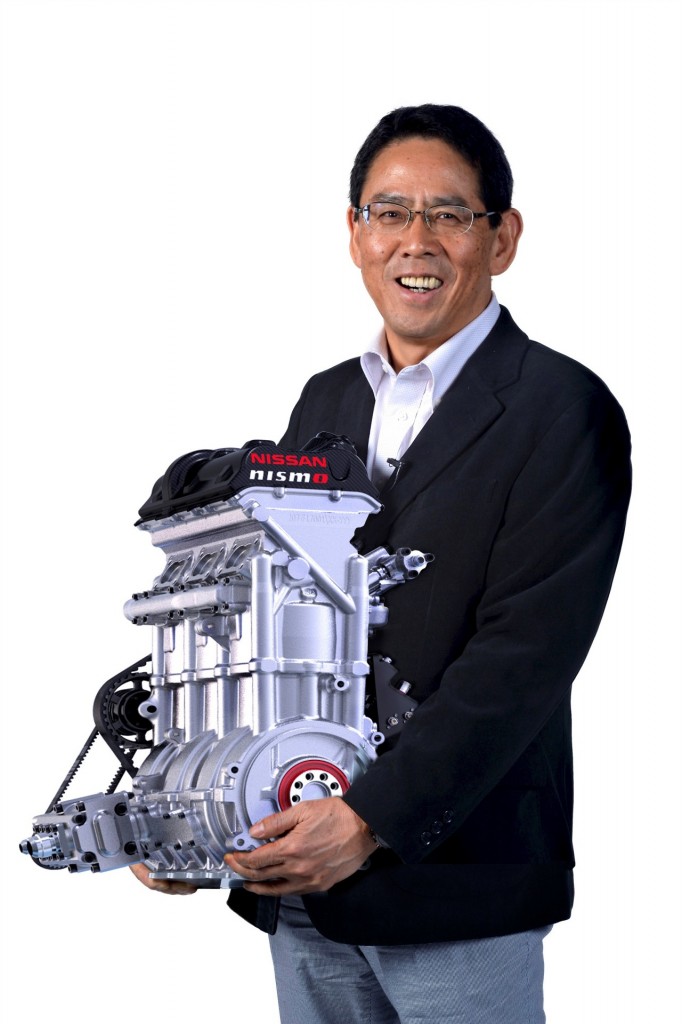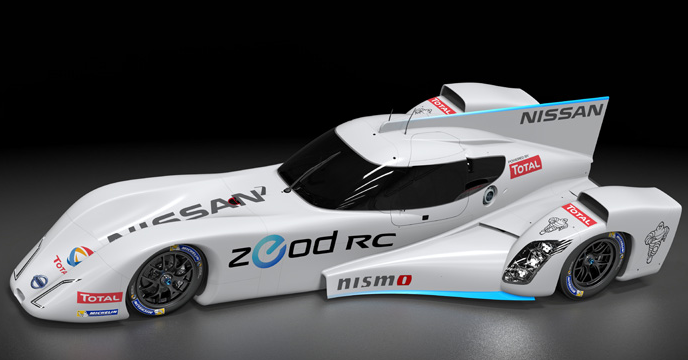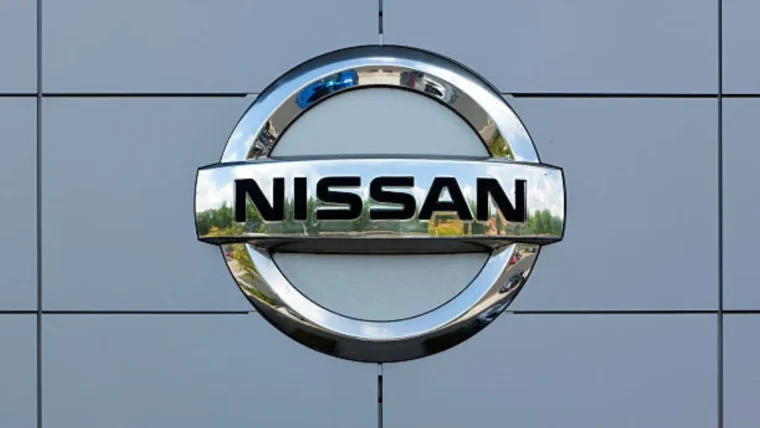Nissan will not only break new ground with the unique electric power plant aboard the Nissan ZEOD RC at Le Mans this year, but the accompanying internal combustion engine is set to revolutionize standards of performance and efficiency.
The Nissan ZEOD RC will become the first entry at Le Mans to complete a lap of the Circuit de la Sarthe under nothing but electric power in June. A single lap of each stint (a fuel “stint” lasts approximately one hour) will be electric powered, then the new Nissan DIG-T R 1.5 liter three-cylinder turbo engine will take over.
The incredibly small engine weighs only 40 kilograms (88 pounds) but produces an astonishing 400 horsepower. The base engine is only 500mm tall x 400mm long x 200mm wide (19.68” x 15.74” x 7.78”). While the engine is technically too heavy to take as carry-on luggage on a plane – it would easily fit inside the luggage guides seen at major airports around the world.
Revving to 7,500rpm, the Nissan DIG-T R produces 380Nm of torque. At a ratio of 10 horsepower per kilogram – the new engine actually has a better power-to-weight ratio than the new engines to be used in the FIA Formula 1 World Championship this year.
With the entire concept of the Nissan ZEOD RC focussing heavily on downsizing and efficiency, Nissan turned to new lubricants partner Total to help develop the engine. The French lubricants manufacturer has worked closely with Nissan engineers to develop fuel and lubricants to maximize the potential of the engine.
The Nissan ZEOD RC will occupy “Garage 56” at this year’s Le Mans 24 Hours, an additional entry reserved by the Automobile Club de l‘Ouest for new and ground-breaking technologies never previously seen at the classic French endurance event.
Lessons learned from the development of the revolutionary racecar will also be used in the development of Nissan’s planned entry into the LM P1 class of the FIA World Endurance Championship in 2015.
“Our engine team has done a truly remarkable job with the internal combustion engine,” said Darren Cox, Nissan’s Global Motorsport Director.
“We knew the electric component of the Nissan ZEOD RC was certainly going to turn heads at Le Mans but our combined zero emission on demand electric/petrol power plant is quite a stunning piece of engineering.
“Our aim is to set new standards in efficiency in regards to every aspect of the car – power train, aerodynamics and handling. For the power train we have worked closely with the team at Total to not only reduce friction inside the engine, but within all components of the power train.
“Friction is the enemy of horsepower and tackling that has been one of the efficiency targets we have concentrated on heavily.”
After extensive dyno testing, the Nissan ZEOD RC hit the track for the first time last week with both the electric and internal combustion engines in place.
Both the petrol and electric power plants run through the same five-speed gearbox that transfers power to the ground via Michelin tires.
“Being chosen by a car manufacturer as a technological partner to achieve a demonstration of innovation, is always a source of pride, especially on this legendary race – 24 Hours of Le Mans. It drives our researchers to find solutions and get the most out of the technical specifications as well as the fuel economy properties that our TOTAL QUARTZ lubricants range provides to all passengers cars”, said Philippe Girard, Scientific Delegate for Total.
The Nissan ZEOD RC will undergo an extensive test program over the next four months prior to it making its race debut at this year’s Le Mans 24 Hours on June 14-15.
Other posts by AF Newsdesk

